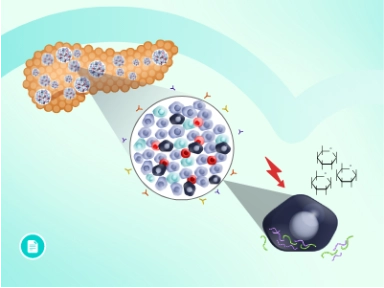- Resource
- BR1DGE
- Early Detection
- Staging
- Video
The Silent Stages of Type 1 Diabetes: An Overview
Staging of autoimmune T1D allows us to track the progressive nature of the disease, from autoimmunity through to insulin dependence.

Learning Objectives
- Educate on staging in presymptomatic autoimmune T1D

Summary
We can divide type 1 diabetes into three stages. Traditionally, we've thought of type 1 diabetes as starting when you need insulin, but we don't need to start there, that's not the beginning. That's close to the later stages of diabetes, and we call that Stage 3. There are two earlier stages. Stage 1 is when you have a lot of beta cells so you can make a lot of insulin and you don't need insulin therapy, but we can detect the autoimmune process and we can detect autoantibodies in the circulation. And Stage 2 is when you have the autoantibodies, you have the autoimmune process, but you've lost quite a lot of beta cells and now your blood sugars are not completely normal.
Not at a level we would call diabetes, but dysglycemia, or impaired glucose tolerance. We call that Stage 2. The clinical implications of a diagnosis of Stage 1 or Stage 2 type 1 diabetes are that there is a clear increased risk of developing Stage 3 disease that requires insulin treatment. In Stage 1 individuals who have at least two types of islet autoantibodies, the risk of clinical disease within five years is around 44%, within ten years, it is around 70% and within 15 years, around 80 to 90%, approaching 100% in long-term follow-up. Individuals with either Stage 1 or Stage 2 type 1 diabetes need monitoring of their glucose metabolism. Currently, the diagnosis of type 1 diabetes is always a big surprise to everybody. It happens suddenly and over 90% of people end up in hospital.
Knowing that there are many stages before that point can help us to avoid that from happening, so that people don't need to come into hospital at all for that diagnosis. If we pick it up early, we can monitor people through the stages and prepare them for the diagnosis months, if not years, before they need insulin. I think the stages of diabetes and the value of it is best shown by a colleague I was talking to recently. She's a pediatrician who specializes in diabetes, and she had a son with type 1 diabetes and a husband with type 1 diabetes. The son was diagnosed when he was sick and had to come into hospital. Then she had a daughter who was tested and picked up early, and her daughter was diagnosed out of hospital in a very calm setting. And ever since she has said: “I'm 100% in favor of screening. I do not want what happened to my son ever to happen to anyone else”.
MAT-GLB-2405122-1.0 – 08/2024



